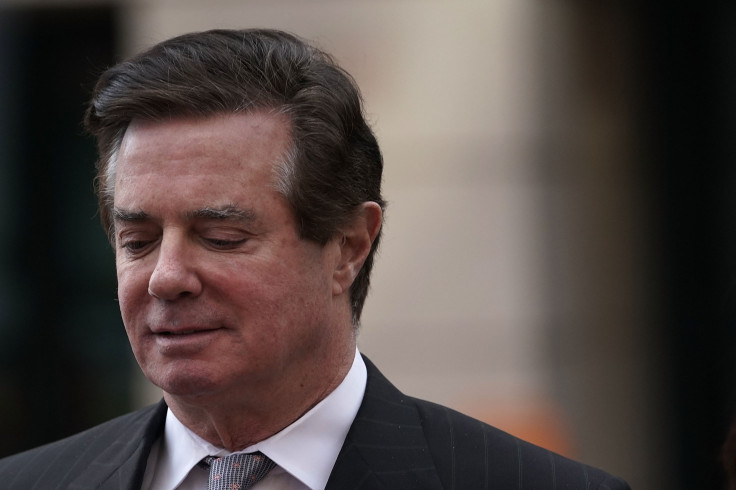Senate Intelligence Committee Agrees On One Thing – Russia Interfered In 2016
KEY POINTS
- The report's release marks an effective conclusion to the committee's investigation into Russia's interference in the 2016 presidential election
- Former Trump campaign member Paul Manafort was highlighted as an important and potentially dangerous security risk
- Committee Republicans and Democrats split on party lines with their respective conclusions
The bipartisan U.S. Senate Intelligence Committee released its fifth and final report on Russian interference in the 2016 presidential election on Tuesday, marking an end to the investigation that began in January 2017.
“The Committee found that the Russian government engaged in an aggressive, multifaceted effort to influence, or attempt to influence, the outcome of the 2016 presidential election,” the report said. “Parts of this effort are outlined in the Committee's earlier volumes on election security, social media, the Obama Administration's response to the threat, and the January 2017 Intelligence Community Assessment (ICA).”
One of the major points of the report is the contact between several of Trump’s known associates during his 2016 campaign and individuals deemed as Russian intelligence officers. Paul Manafort, who chaired Trump’s presidential campaign team in 2016, was of particular interest to the committee because of his history and list of associates in Russia.
Two of the associates identified in the report were Russian oligarch Oleg Deripaska and Russian national Konstantin Kilimnik. These contacts, coupled with Manafort’s “high-level access” and apparent willingness to share campaign information, made Manafort “a grave counterintelligence threat.”
The report said:
“Prior to joining the Trump Campaign in March 2016 and continuing throughout his time in the Campaign, Manafort directly and indirectly communicated with Kilimnik, Deripaska, and the pro-Russian oligarchs in Ukraine. On numerous occasions, Manafort sought to secretly share internal Campaign information with Kilimnik. The Committee was unable to reliably determine why Manafort shared sensitive internal polling data or Campaign strategy with Kilimnik or with whom Kilimnik further shared that information."
The report went on to say that the committee "had limited insight into Kilimnik's communications with Manafort and into Kilimnik's communications with other individuals connected to Russian influence operations, all of whom used communications security practices. The Committee obtained some information suggesting Kilimnik may have been connected to the GRU's hack and leak operation targeting the 2016 U.S. election.”
The committee's report also said Manafort had contact with Kilimnik through 2018 over a potential peace plan with Ukraine that “benefited the Kremlin.”
Manafort subsequently pleaded guilty in 2018 to multiple charges of tax fraud, bank fraud, and conspiracy and sentenced to more than seven years in federal prison. He was released to home confinement in May 2020 due to coronavirus concerns.
The report also covers the 2016 hack by Russia’s GRU, the meetings at Trump Towers in New York and Moscow, WikiLeaks, former Trump campaign foreign policy panel member George Papadopoulos, Carter Page, and the Christopher Steele dossier that spurred the Russia investigations.
While the bipartisan report concludes Russia did pursue a campaign of aggressive interference, that’s where the apparent agreement ends. Republican members, led by committee chair Sen. Marco Rubio, R-Fla., said the findings validated their belief there was no active collusion between the Trump campaign and the Russian government.
“Volume 5 is an important contribution to the historical record from which historians will someday draw. As is evident to those who read all five volumes of the Committee's report, the Russian government inappropriately meddled in our 2016 general election in many ways but then-Candidate Trump was not complicit,” Rubio said in the report. “After more than three years of investigation by this Committee, we can now say with no doubt, there was no collusion.”
The Democrats on the committee disagreed with this conclusion, saying:
“The Committee's bipartisan Report unambiguously shows that members of the Trump Campaign cooperated with Russian efforts to get Trump elected. It recounts efforts by Trump and his team to obtain dirt on their opponent from operatives acting on behalf of the Russian government. It reveals the extraordinary lengths by which Trump and his associates actively sought to enable the Russian interference operation by amplifying its electoral impact and rewarding its perpetrators - even after being warned of its Russian origins."
Regardless of the conclusions, North Carolina senator and former committee chairman Richard Burr warned Russia may not be done with its efforts to interfere in U.S. elections. Burr left the Senate Intelligence Committee in May 2020 amid an insider trading investigation related to the coronavirus pandemic.
“One of the Committee's most important — and overlooked — findings is that much of Russia's activities weren't related to producing a specific electoral outcome, but attempted to undermine our faith in the democratic process itself,” Burr said in a press release. “Their aim is to sow chaos, discord, and distrust. Their efforts are not limited to elections.”

© Copyright IBTimes 2024. All rights reserved.





















